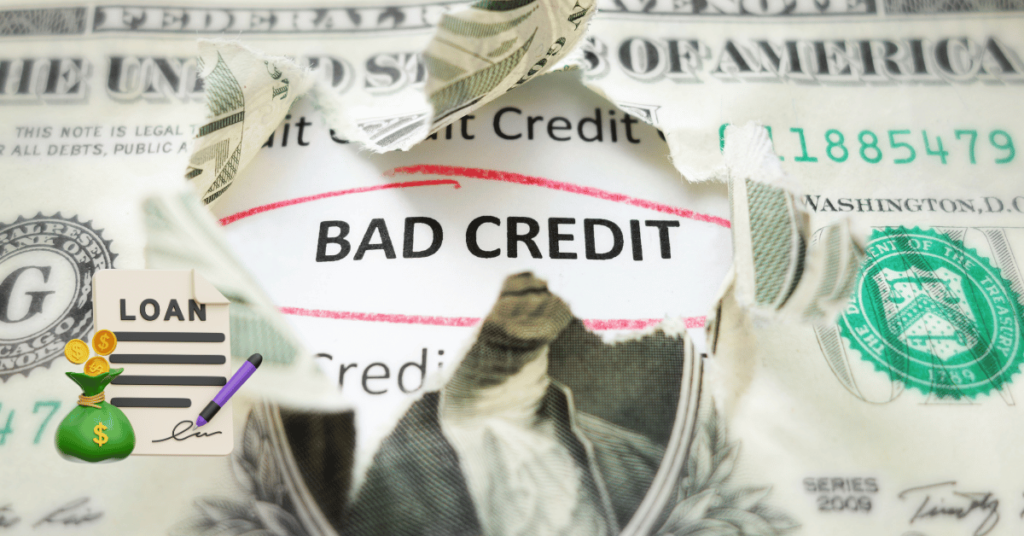Getting a medical loan with bad credit can be challenging, but it’s not impossible. Medical expenses can arise unexpectedly, and for people with bad credit, finding financing can feel overwhelming. Fortunately, there are several options available to help you cover medical costs, even with a poor credit score.
This guide will explore the best ways to secure a medical loan with bad credit and what you need to consider before applying.
What Are Medical Loans?
Medical loans are personal loans specifically designed to help individuals cover healthcare-related expenses. These loans can be used to pay for a variety of medical procedures, including surgeries, dental treatments, fertility treatments, and other medical emergencies. Unlike health insurance, medical loans provide upfront funding that you repay over time in fixed monthly payments.
Challenges of Getting a Medical Loan with Bad Credit
A poor credit score makes securing any type of loan more difficult. Lenders typically see individuals with bad credit as high-risk borrowers, which often leads to higher interest rates or even loan rejection. However, there are still lenders who specialize in offering loans to people with bad credit, especially when it comes to urgent medical needs.
Loan Options for People with Bad Credit

1. Secured Medical Loans
Secured loans require collateral, such as a car, home, or savings account. Because the loan is backed by collateral, lenders are more likely to approve your application, even with bad credit. If you default on the loan, the lender can seize your collateral, so it’s important to only borrow what you can repay.
2. Credit Union Loans
Credit unions are nonprofit financial institutions that often offer more flexible loan terms compared to traditional banks. If you have bad credit, a credit union may be more willing to work with you, especially if you’ve been a long-term member. Some credit unions offer medical loans with lower interest rates and more lenient approval criteria.
3. Peer-to-Peer Lending
Peer-to-peer lending platforms allow individuals to borrow money directly from investors. These platforms often have more relaxed credit requirements, making them a good option for people with bad credit. However, interest rates can vary widely, so it’s important to compare offers from multiple lenders before committing.
4. Medical Credit Cards
Some medical providers offer special credit cards designed to cover healthcare expenses. These cards often come with promotional interest-free periods, allowing you to pay for medical treatments over time without accumulating interest—if you pay off the balance during the promotional period. However, after this period ends, interest rates can be high, so it’s essential to read the terms carefully.
5. Cosigner Loans
If your credit score is too low to qualify for a medical loan on your own, consider asking a friend or family member with good credit to cosign your loan. A cosigner can help you get approved for a loan with better terms, but they are equally responsible for repaying the loan if you default, so it’s important to discuss the terms with your cosigner beforehand.
6. Short-Term Loans or Payday Loans
While payday loans or short-term loans may be an option, they typically come with extremely high interest rates and short repayment terms. These loans should only be considered as a last resort, as they can lead to a cycle of debt if not managed properly.
Factors to Consider Before Taking a Medical Loan with Bad Credit

Interest Rates
If you have bad credit, expect higher interest rates on your medical loan. Be sure to compare rates from multiple lenders to find the best option. Even a small difference in interest rates can save you hundreds or thousands of dollars over the life of the loan.
Loan Terms
Loan terms refer to the length of time you have to repay the loan. Shorter terms may mean higher monthly payments but less interest paid overall. Longer terms reduce your monthly payments but increase the total interest over time.
Fees
Some medical loans come with origination fees, late payment fees, or prepayment penalties. Make sure to read the fine print and understand all the fees associated with your loan before applying.
Credit Impact
While getting a loan may provide temporary relief for medical expenses, missing payments or defaulting on the loan can further damage your credit score. Make sure you can comfortably manage the loan payments within your budget.
How to Improve Your Chances of Getting Approved
1. Check Your Credit Report
Before applying for a medical loan, review your credit report for any errors or inaccuracies that could be dragging down your score. Disputing incorrect information can improve your credit score and increase your chances of getting approved.
2. Compare Lenders
Not all lenders have the same credit requirements or loan terms. Some specialize in bad credit loans, while others may have more flexible income verification processes. Take the time to shop around and compare different loan offers.
3. Provide Proof of Income
Lenders may be more willing to overlook a low credit score if you can demonstrate that you have a stable source of income. Providing proof of consistent income can help reassure lenders that you’ll be able to make loan payments on time.
4. Start with a Smaller Loan
If you’re struggling to get approved for a larger medical loan, consider applying for a smaller loan amount. Once you’ve built up a history of on-time payments, you may qualify for larger loans in the future.
5. Consider Alternatives
If a medical loan with bad credit doesn’t seem like the right option, explore other ways to finance your healthcare costs. Some hospitals and medical providers offer payment plans that allow you to spread the cost of treatment over several months without interest. Crowdfunding platforms are another option, allowing friends, family, and even strangers to contribute toward your medical bills.
Conclusion
While getting a medical loan with bad credit can be difficult, there are several options available to help you manage your healthcare expenses. From secured loans to credit union loans, it’s important to compare different lending options to find the best fit for your financial situation. Make sure to understand the loan terms, interest rates, and fees before applying, and consider alternatives like payment plans or peer-to-peer lending if traditional loans are not an option. With careful planning and the right approach, you can find a loan that works for you, even with bad credit.
If you have any questions feel free to comment down below. We are always here to guide you!




